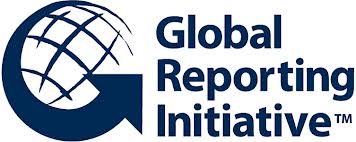 Today, Monday 5 November 2012, the Global Reporting Initiative (GRI) – which produces Guidelines that companies can use to report their sustainability performance – issues its Annual Report 2011/12. The report draws attention to significant developments in encouraging policy around sustainability reporting, and emphasizes the importance of policy in making sustainability reporting a standard business practice.
Today, Monday 5 November 2012, the Global Reporting Initiative (GRI) – which produces Guidelines that companies can use to report their sustainability performance – issues its Annual Report 2011/12. The report draws attention to significant developments in encouraging policy around sustainability reporting, and emphasizes the importance of policy in making sustainability reporting a standard business practice.
In the report Ernst Ligteringen, GRI Chief Executive, stresses that “Policy and regulation could have a big impact on the uptake of sustainability reporting; a practice that can serve markets and society, and contribute to sustainable development.”
Research published by KPMG (2011) highlights rises in the number of sustainability reporting companies in the Nordic region, France, South Africa, China and India, where regulation or government-led guidelines are in place.
According to KPMG, these figures are ‘likely driven by government policy in this area, such as Sweden’s program to report Corporate Responsibility (CR) activities for all state-owned companies or Denmark’s reporting requirement for all listed companies’, and that ‘government intervention may be required to stimulate CR activity and reporting’.
GRI’s Annual Report presents the major global policy developments of the last year. It also details GRI’s encouragement of policy. This includes the work of its Governmental Advisory Group, and its Report or Explain Campaign Forum – a convening space for supporters of a ‘report or explain’ approach to sustainability reporting policy, where organizations disclose their sustainability performance or explain why if they do not.
Both initiatives enabled GRI to progress the reporting agenda at the UN Conference on Sustainable Development (Rio+20) in June 2012. GRI worked with many partners to promote sustainability reporting as a key way for the business sector to contribute to sustainable development.
Rio+20 saw positive advancements for transparency in business, through the publication of paragraph 47 of the outcome document The future we want. Paragraph 47 received widespread support and endorsement from 200 countries. The governments of Brazil, Denmark, France and South Africa have formed a ‘Group of Friends of Paragraph 47’ to advance corporate sustainability reporting. The Group has invited GRI and the United Nations Environment Programme to support it.
GRI’s report quotes Carlos Márcio Bicalho Cozendey, Secretary for International Affairs at the Ministry of Finance, Brazil: “Government here was behind society in the recognition of the role sustainability reporting can play. But at Rio+20 we had the opportunity to open space for a wider discussion of the instrument and, through paragraph 47 of the final document, it was possible to strengthen awareness of governments and create a base for a more systematic promotion and diffusion of the practice. We hope it will help to create a quiet revolution in the way companies face their social responsibilities.”
GRI’s Annual Report also highlights other forces driving the uptake of sustainability reporting. Stock exchange policies, listing requirements and recommendations boost reporting figures among companies listed on the Johannesburg (South Africa), Shanghai and Shenzen (China), BM&FBOVESPA (Brazil), Bursa Malaysia, and Singapore stock exchanges.
Companies are also increasingly demanding sustainability information from parties in their supply chains, many of which are based in emerging economies and developing countries. KPMG’s research shows that almost 60 percent of China’s largest companies report on Corporate Responsibility metrics, while GRI’s figures show a 15 percent increase in sustainability reporting by African companies from 2010 to 2011.
In support of the mainstreaming of sustainability reporting, the next generation of GRI’s Reporting Guidelines, G4, is currently in development and due to be published in May 2013.
The different factors involved in mainstreaming are highlighted in GRI’s report by Richard Howett MEP (European Rapporteur on Corporate Social Responsibility), who says: “Having worked alongside GRI at the Rio+20 Summit to support the Group of Friends of Paragraph 47 as the vanguard group of governments advancing the commitment to corporate sustainability reporting in the outcome document, I am now proud as Rapporteur to be driving European Union backing for this process and EU steps forward on non-financial reporting. EU and global work on Paragraph 47 is not really an ‘outcome’ but a first step. GRI stakeholders, this report and GRI’s forthcoming G4 Guidelines are vital for showing the desire for progress.”
About the Global Reporting Initiative
The Global Reporting Initiative (GRI) produces a comprehensive Sustainability Reporting Framework that is widely used around the world, to enable greater organizational transparency. The Framework, including the Reporting Guidelines, sets out the Principles and Indicators organizations can use to report their economic, environmental, social, and governance performance. GRI is committed to providing up to date guidance and increasing the use of the Guidelines, which are freely available to the public.
Website: www.globalreporting.org
Major global policy developments in 2011/12:
India: National Voluntary Guidelines on Social, Environmental and Economic Responsibilities of Business, July 2011. Guidelines that identify areas where responsible practices need to be adopted. The accompanying Reporting Framework provides a standard disclosure template which can be used to report performance.
India: The Securities Exchange Board of India (SEBI) mandates listed companies to submit business responsibility reports following the key principles of the National Voluntary Guidelines, November 2011. Listed companies must submit Business Responsibility Reports.
Finland: Government Resolution on State Ownership Policy, November 2011.
Non-listed state-owned companies and state majority-owned companies must report their sustainability performance or explain why not. The annex includes a corporate responsibility reporting model based on GRI’s Reporting Guidelines.
Brazil: BM&FBOVESPA (São Paulo stock exchange) recommendation for listed companies to provide information on whether they publish a regular sustainability report, or explain why if they do not, January 2012.
France: Decree nr. 2012-557 regarding disclosure obligations for companies in social and environmental fields, April 2012. Article 225 of the second Grenelle Act specifies that all listed companies and companies with an annual balance and turnover of 100 million Euros and an average of 500 permanent employees are obliged to disclose certain social and environmental information, and information on societal commitments to favor sustainable development.
European Union: Communication from the Commission to the European Parliament, the Council, the European Economic and Social Committee and the Committee of Regions, October 2011. One of the eight policy agenda points of A renewed EU strategy 2011-14 for Corporate Social Responsibility covers the improvement of company disclosure of social and environmental information.

